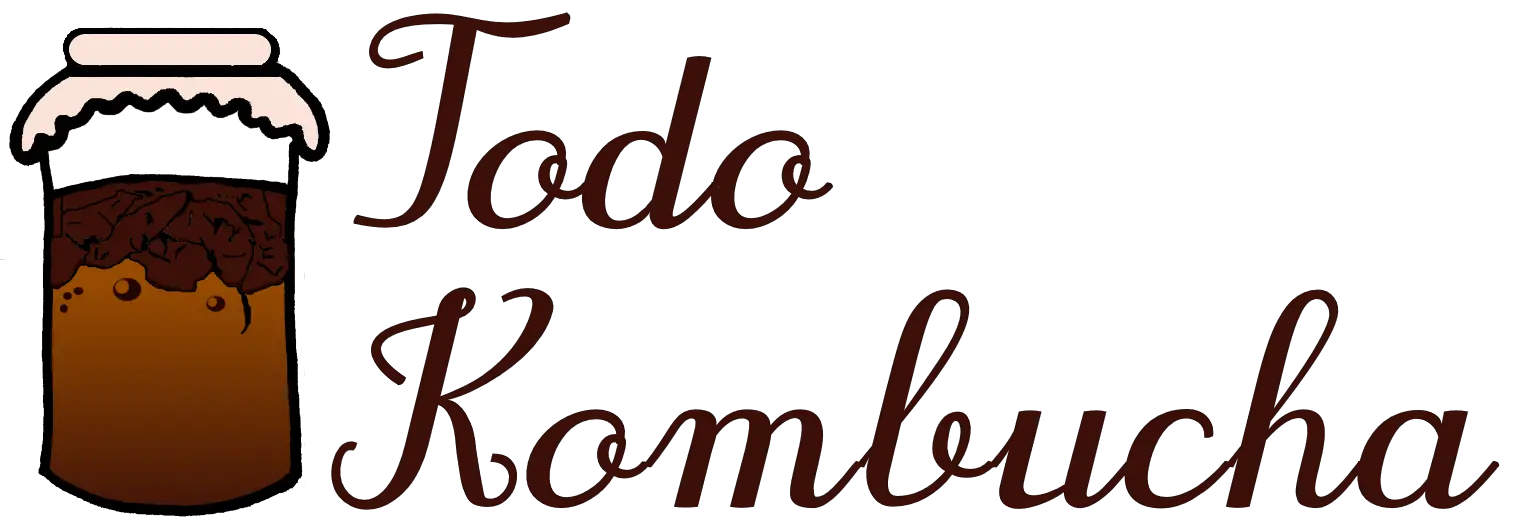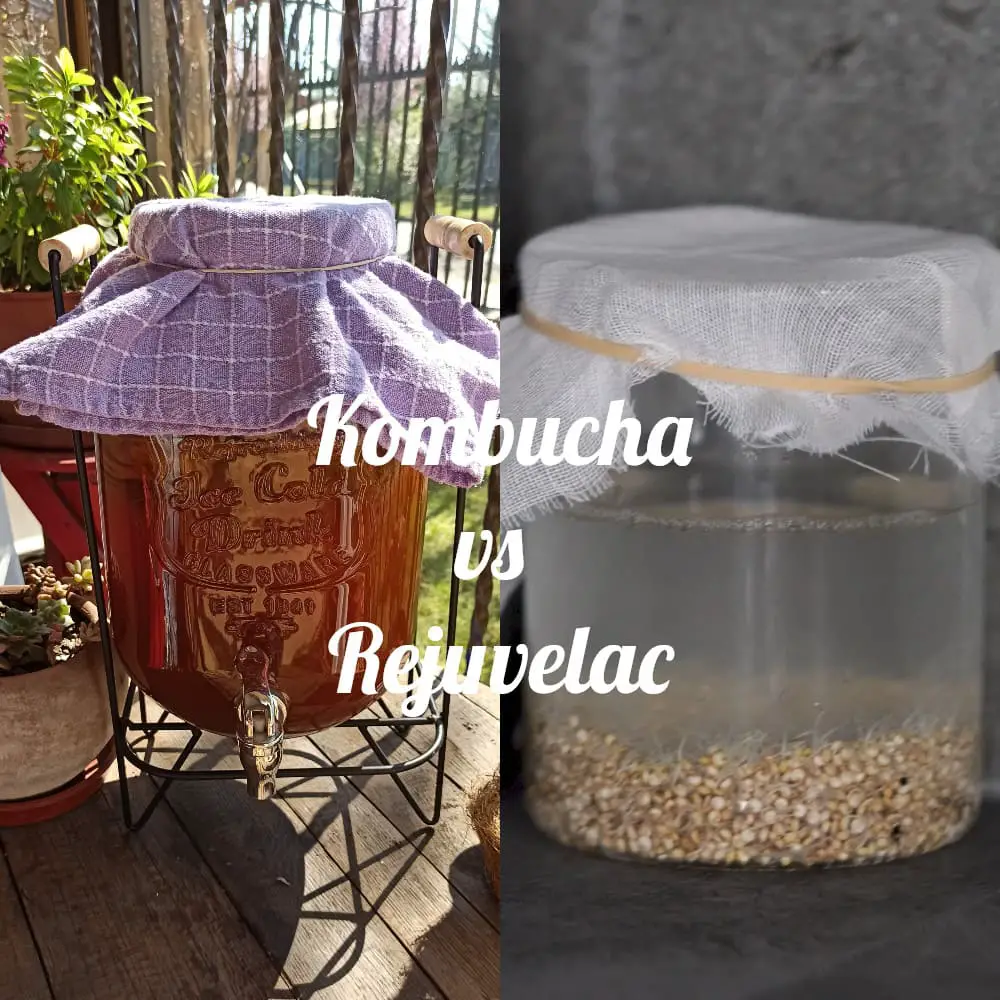Nowadays it is very important to incorporate into our diet foods rich in probiotics that take care of our intestinal health and our immune system by strengthening.
For years, the Asians recommended the consumption of germinated sprouts to live more than 100 years and in a healthy way, the sprouts provide enzymes to the body making it an essential product for the body.
Rejuvelac is an enzyme-rich fermented beverage based on seed sprouts or wheat. This drink is called enzymatic water because of the enzymes of the seed shoots that pass into the water and contains various benefits that contribute to health. [1]
Kombucha being a drink rich in probiotics and used for human consumption for years for its beneficial properties for health product of the fermentation of black or green tea.
Both drinks have many characteristics in common here will be explained in more detail about each drink and its different benefits in the body.
What do kombucha and rejuvelac have in common?
Kombucha and rejuvelac have many characteristics in common in terms of being probiotic drinks product of fermentation through a base or raw material, in kombucha it is based on black or green tea and Rejuvelac based on originally germinated wheats.
However, rejuvelac can be used as raw material any germinated seed, from grains such as lentils, oats, or alfalfa, among others.
Both drinks are closely related to the numerous benefits they bring to human health. Among these properties stand out: strengthening intestinal health, improving the immune system, and facilitating digestion, as we will see below.
What are the benefits of kombucha and rejuvelac?
The beneficial properties of kombucha and rejuvelac are:
- They favor the processes of detoxification and purification.
- They strengthen the immune system.
- They stimulate pancreatic secretions.
- They facilitate digestion.
- They improve bowel function, which is a relief for those suffering from constipation.
- Strengthens the intestinal flora.
- Tones the nervous system.
- They delay aging (the name rejuvelac comes from its quality of being a rejuvenating drink) although research is lacking in this regard.
- Improves metabolism in general.
- They are low in calories.
- If the sprouts with grains are performed, aflatoxins, anti-nutrients in general, are inactivated.
Contraindications of kombucha and rejuvelac
In the case of Rejuvelac it has no contraindications, however it is necessary to be cautious people who are sensitive to gluten with severe allergic reactions or those who have celiac disease, it is better to use brown rice, quinoa, or millet as raw material.
In the case of kombucha, cases of toxicity have been reported as a side effect such as dizziness and nausea, lead poisoning however there have been reports of few people this may be due to people with a severe degree of immunosuppression. These are very isolated cases.
In cases of pregnant women there is no study that proves its contraindication, however, be careful when ingesting these drinks not to exceed consumption.
Recommended dosage to consume kombucha and rejuvelac.
Kombucha being a natural drink starts with a daily intake of “120 to 360 ml” distributed before the main meals, it would be the recommended dose to notice the effects in a short term. As for DIABETICS, keep in mind not to exceed this amount for the sugar added to the drink.
You can accompany this drink with 2 liters of water per day to increase the amount of elimination of toxic substances that kombucha dissolves.
As for Rejuvelac is consumed between 1/4 to 1/2 cup a day (100 to 125 ml), daily, it can be consumed on an empty stomach or before the meal, alone or in combination with fruit juice.
Are the probiotics in kombucha and rejuvelac the same?
Both products are probiotics because they contain live non-pathogenic microorganisms, although several certain bacteria in each of them.
In the case of kombucha, the most common microorganisms are Saccharomyces cerevisiae, Acetobacter Xylinum and Gluconobacter, among others.
In the case of Rejuvelac it is somewhat different from most fermented beverages and foods since it does not need any bacteria culture starter, it is considered a free fermentation because the necessary microorganisms are naturally present in the germinated grains or seeds.
However, after fermenting this drink in water produces a high enzymatic activity that helps the production of bacteria such as lactic acid producing lactobacilli and yeasts.
Main differences: Kombucha vs Rejuvelac
Between these 2 drinks there are not many differences between them except for their microorganisms, fermentation process and their base as raw material in the same way we will detail their characteristics in general.
Origin
Kombucha comes from the Asian continent, exactly from China.
Rejuvelac comes from the Asian continent (China) and the East
Raw material and its preparation
In kombucha the raw material is an infusion of sugary black or green tea.
The process of elaboration to this liquid is added a symbiotic culture of bacteria and yeasts sugar is added for its fermentation is placed in a glass container covered with a cloth that allows the circulation of air without letting dust or insects enter and the mixture is left to rest for a week or more.
In the Rejuvelac the raw material is based on wheat or germinated seeds.
The elaboration process begins first by sprouting the seeds and then covered with water in proportion of liter of water per cup of sprouts, the jar is covered with the tulle and elastic band keeping it for 48 hours at room temperature, then the water of the sprouts is placed in another jar and stored in the refrigerator.
It is important the hygiene of the jars, the quality of water and the correct rinsing of the grains so that other opportunistic bacteria and fungi do not grow. Another important aspect to mention for the germination of the seeds to occur correctly requires water, heat, and air. (1)
Microorganisms present
Kombucha is a symbiotic colony of different bacterial species and probiotic yeasts identified as: Acetobacter xylinum, Gluconobacter bluconicum. And of the yeasts identified as: Schizosaccharomyces pombe, Schizosaccharomyces cerevisiae, Zygosaccharon bailii, Kloecera apiculata, Brettanomyces bruxellensis, Brettanomyces lambicus, Brettanomyces Custersii, candida stellata.
In rejuvelac the most relevant bacteria found in this drink are Lactobacillus bifidus and Aspergillus oryzae
Fermentation conditions
Kombucha is fermented with an average ambient temperature of 21 to 27 ° C that requires approximately 7 to 15 days of time to finish fermenting.
Rejuvelac is fermented at a temperature of 20 to 22°C requiring 48 to 72 hours of time to finish fermenting.
Nutrients
Both drinks contain high content of vitamins and minerals such as vitamin A, C, D and E. as well as folic acid, phosphorus, calcium, magnesium and are low in calories.
However, in rejuvelac we can also find vitamins B and K, essential amino acids, carbohydrates, fibers, chlorophyll and especially enzymes called diastase that help in the breakdown of carbohydrates.
Taste and color
Both drinks are slightly acidic, the Rejuvelac has a somewhat carbonated flavor reminiscent of yeasts and with some foam on its surface.
Texture
Kombucha and Rejuvelac are drinks with a liquid texture in their composition.
Aroma
Both drinks have a slightly vinegary aroma
We will clarify some of the main differences in a comparative style chart to make it clearer and more concise for readers.
| Characteristics | Rejuvelac | kombucha |
| Origin | China | China |
| Raw material | Sprouted seeds or wheat | Black or green tea |
| Microorganisms | Bacteria such as lactobacilli and certain yeasts | Bacteria and yeasts |
| Fermentation time | 48 to 72 hours | 7 to 15 days |
| Fermentation temperature | 20 to 22°C | 21 to 27°C |
| Nutrients | Low in calories (high contribution of enzymes and vitamins) | Low calorie (high in vitamins, iron) |
| Taste | Slightly acidic | Acidic or slightly sweet |
| Aroma | Slightly acidic | Slightly vinegary |
| Colour | Cloudy | Brown or reddish |
| Texture | Liquid | Liquid |
| Composition | Liquid | Liquid |
| Recommended dose | 100 to 125 ml daily | 120 to 360 ml daily |
So far comes our day with this comparison that was Kombucha vs Rejuvelac. As always, you are cordially invited to continue reading about other super interesting content related to kombucha and fermented foods.

